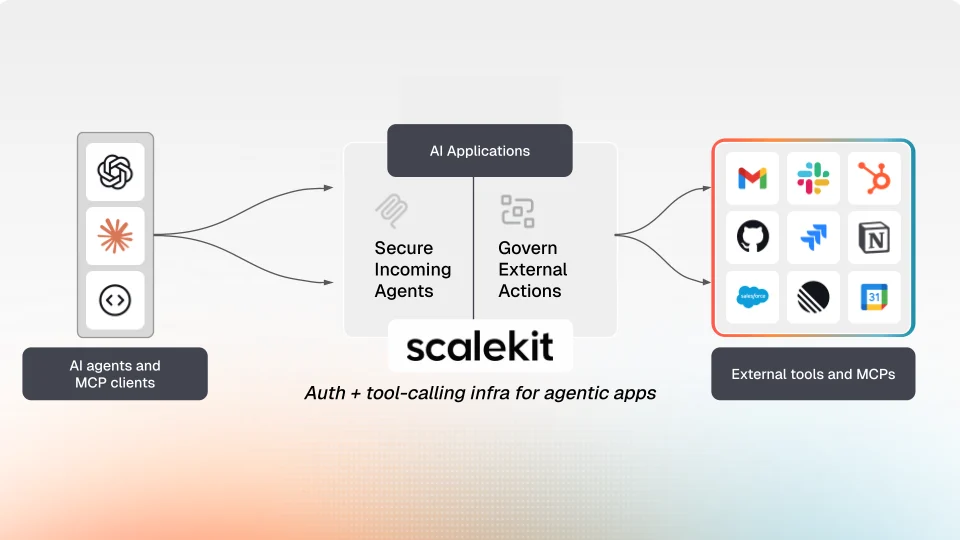
For two decades, software assumed humans would log in to use applications. The next wave will see AI agents invoking business apps and APIs—either on behalf of users or autonomously. Identity and access systems now must verify the identity of these agents and their permissions.
To tackle this shift, Scalekit launched an authentication stack specifically built for agent-centric applications and recently announced a $5.5 million seed funding round led by Together Fund and Z47, with angel investors such as Adam Frankl, Oliver Jay, and Jagadeesh Kunda.
Gartner anticipates that by 2028, 25% of enterprise breaches will be attributed to compromised AI agents. Yet the current identity systems are still structured on the assumption that humans log in through a browser, which becomes problematic when agents can complete tasks autonomously.
“For years, the focus has been on blocking bots. Now business applications need to allow authenticated agents access while also determining the specific data they can interact with,” said Satya Devarakonda, co-founder and CEO of Scalekit. “Scalekit occupies the crucial space of verifying every agent’s identity and enforcing strict, minimal access permissions through a single, easy-to-integrate toolkit.”
Girish Mathrubootham, Founding Partner at Together Fund, added that “AI agents are becoming primary users of business software, yet existing identity frameworks cannot support this evolution. Scalekit identified this early on and created the missing infrastructure for agent identities, which we believe will support the next billion agent identities.”
Scalekit enables secure management for both incoming authentications to MCP servers and outgoing agent interactions with third-party tools. Teams developing Model Context Protocol (MCP) servers can implement a comprehensive OAuth 2.1 authorization server swiftly.
Furthermore, agent developers can easily integrate an encrypted token vault and a tool-calling layer that allows agents to operate on a user’s behalf across platforms like Gmail, Slack, HubSpot, and Notion without custom integrations.
Looking toward the future, Scalekit aims to expand its roadmap with support for background agents, enhanced tool-calling features, detailed authorization logs, and prebuilt connectors for over 1,000 external applications.
